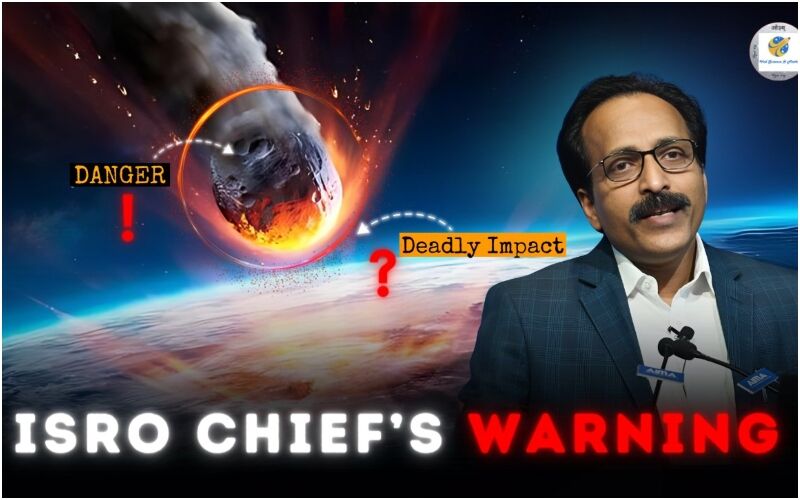OMG! ISRO Chief On Possibility Of Asteroid Apophis Hitting Earth In 2029: If It Happens, We All Are Extinct
ISRO plans to study the asteroid Apophis when it is 32,000 km away from Earth in 2029. This research aims to enhance planetary defense efforts and develop strategies to prevent potential asteroid impacts

On June 30, 1908, a colossal air blast from an asteroid devastated approximately 2,200 square kilometers of dense forest in Tunguska, Siberia, toppling nearly 80 million trees. This event, known as the Tunguska event, remains a stark reminder of the potential destruction that asteroids can cause. In the present era, the near-Earth asteroid Apophis, with a diameter of 370 meters, is considered one of the most hazardous. Apophis is expected to pass by Earth on April 13, 2029, and again in 2036. The impact of a significantly larger asteroid, around 10 kilometers or more, is considered an extinction-level event, capable of wiping out most species on Earth. Such an event is widely believed to have led to the extinction of the dinosaurs.
Globally, space agencies are actively working on developing planetary defense mechanisms to protect Earth from potential asteroid impacts. The Indian Space Research Organisation (ISRO) is also keenly participating in these efforts. ISRO Chief S Somanath emphasized the need for preparedness, noting that while humans may not witness such catastrophic events within their lifetimes, history shows that these events are not uncommon in the universe. He referenced the Shoemaker-Levy 9 comet impact on Jupiter as an example of the potential devastation an asteroid impact could cause. Somanath stressed the importance of developing technology to detect and deflect asteroids to prevent potential extinction events on Earth.
To address these threats, significant advancements have been made in asteroid exploration and sample return missions. Notably, the DART mission successfully demonstrated kinetic impactor technology for asteroid deflection, garnering global interest and highlighting the feasibility of such interventions. ISRO, acknowledging the urgency of planetary defense, has initiated focused activities to enhance its capabilities in this domain.
ISRO's commitment to planetary defense was further underscored on World Asteroid Day (June 30) when it hosted a workshop featuring leading experts from space agencies like JAXA and ESA. These experts discussed the Hayabusa-2 asteroid mission, ongoing planetary defense efforts, and asteroid monitoring activities conducted by ESA. The workshop also highlighted the roles of international organizations such as the International Asteroid Warning Network (IAWN) and the Space Mission Planning Advisory Group (SMPAG) in addressing asteroid impact threats.
Indian Space Research Organisation, #ISRO Chairman S. Somnath has said that the Indian space agency will conduct a study of the #Apophis #asteroid when it will be closest to #Earth in 2029. pic.twitter.com/b1LSHf7DqC
— All India Radio News (@airnewsalerts) July 4, 2024
Anil Kumar, Associate Director of ISRO Telemetry, Tracking, and Command Network (ISTRAC), mentioned ongoing experiments to assess readiness in case of an imminent asteroid impact. He emphasized the importance of global collaboration and the need for ISRO to develop technical and programming capabilities to work alongside other international agencies in planetary defense initiatives.
In summary, the threat of asteroid impacts, though seemingly distant, is a real possibility that necessitates global cooperation and technological advancement. ISRO's proactive approach, along with international collaborations, aims to ensure that humanity is prepared to defend against potential asteroid threats, safeguarding life on Earth.
Image Source: Twitter
_2025-1-14-6-12-28_small.jpg)
_2025-1-14-6-23-6_small.jpg)
_2025-1-14-6-29-53_small.jpg)
_2025-1-14-10-41-6_small.jpg)
_2025-1-15-7-18-31_small.jpg)
_2025-1-15-7-38-30_small.jpg)